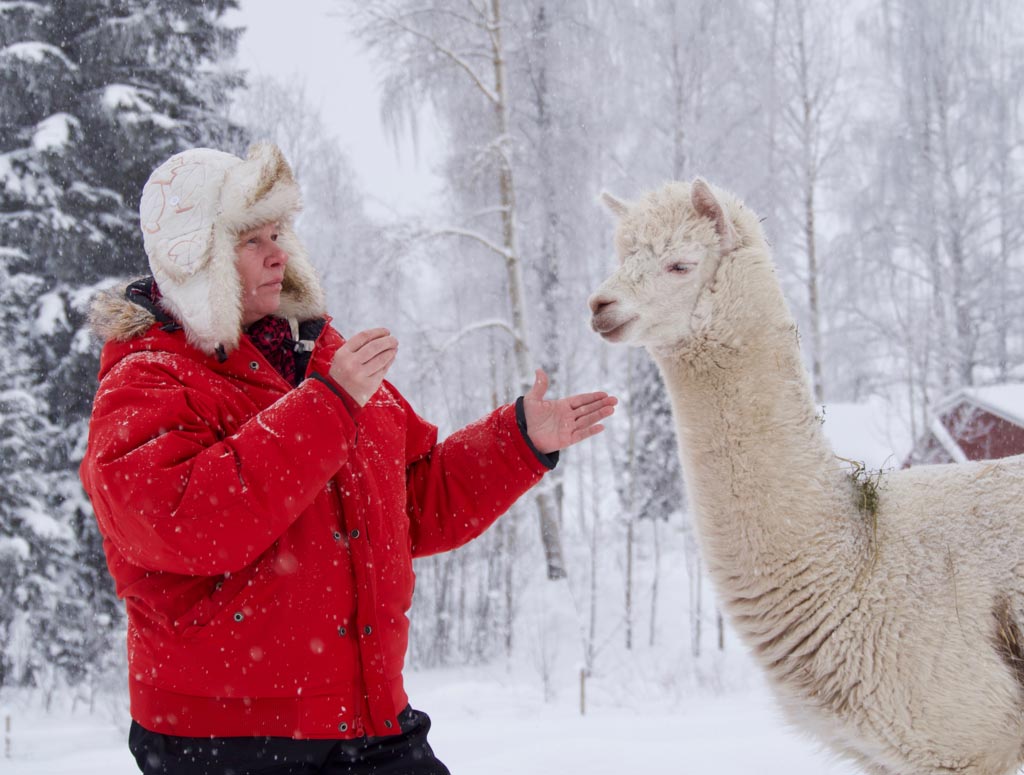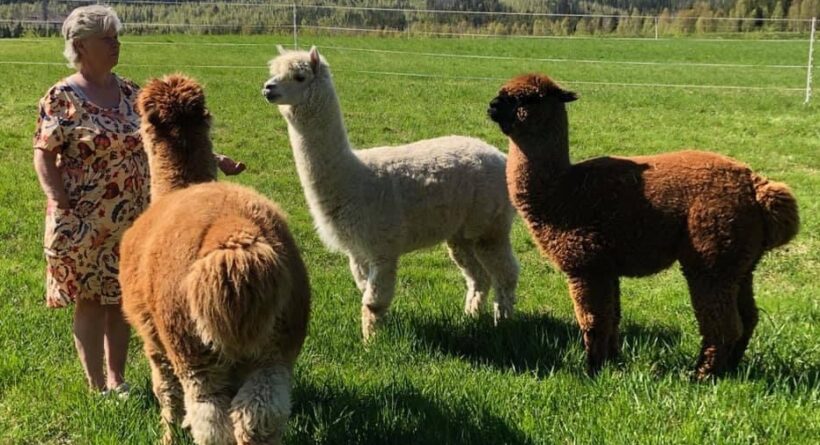Swedish Lapland Alpaca
[cbxwpbookmarkbtn]
Lär er mer om alpackans historia och njut av lugnet på alpackagården i Åkerby. Alpackor är speciella djur som både är vaksamma och nyfikna.
Alpackagården är som en liten oas som präglas av livet på landet med få passerande, självhushåll och kretsloppstänk som får ta tid. Här kan ni vara er själv, känna er som hemma och gå ner i varv med de behagliga djuren intill. Här finns te, kaffe och kaka och vill ni ha med eget fika får du gärna det. Gården ligger ca. 30 min från Boden och 30 min från Harads på Lule älvdals södra sida. Vägen dit är i sig ett stycke äkta svensk och norrbottnisk natur. På gården finns även ett stensliperi och ullstuga där ni kan köpa smyckestenar, alpackornas mjuka ull mm.
All visits must be pre-booked. The visit is on the animals' and farm's terms.
The activity is pre-booked with a minimum of 2 people and a maximum of 4 people.
For larger group visits or special arrangements, please contact Swedish Lapland Alpaca and they can tailor something suitable.
SWEDISH LAPLAND ALPACA
Åkerby 16
961 95 Boden
+46 706 897 087



